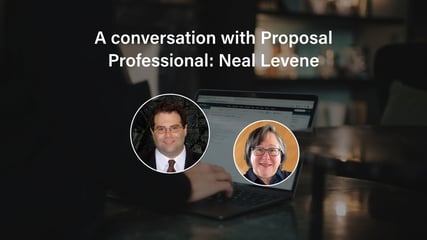Proposal development brings together people, tools, and strategy to create persuasive and compliant documents that help organizations win contracts. According to the Association of Proposal Management Professionals (APMP),
“Proposals influence up to 40% of total sales revenue.”
That’s why more companies now see this process as a key part of their growth strategy — not just paperwork.
In this guide, we will explain what proposal management is, how the process works and what kind of people you need on your team.
Step 1: Understanding Proposal Management and Its Core Concepts
Proposal management is more than meeting deadlines. It’s a structured, team-driven process that helps businesses respond to opportunities with high-quality, strategic proposals.
It covers the entire proposal process. This includes finding an opportunity, creating the final document, and learning from the results.
Capture Management: Starting Before the RFP
The proposal management process starts before an RFP is published. This early phase is called capture management or pre-RFP selling. It focuses on finding good opportunities and getting ready to win them.
Teams research the potential client, understand their needs, study the competition, and develop a strategy. In the article Proposal Win Strategy, we learn that early engagement leads to stronger positioning—and a higher win rate.
Bid/No-Bid Decisions: Choosing the Right Opportunities
Not every opportunity is a good fit. In bid/no-bid analysis, proposal teams evaluate if the project aligns with their strengths, capacity, and goals.
This decision often hinges on factors like delivery risks, cost, deadlines, and how well the offering meets client needs. Making clear go/no-go decisions helps teams save time and focus their energy where it matters most. Dive deeper into this subject here: Proposal Deadlines: Challenges and Strategies.
The Proposal Lifecycle: From Start to Submission
The proposal lifecycle includes every stage of proposal development—from spotting the opportunity to submitting the final document and reviewing the results.
A well-defined process improves team coordination and reduces errors. Our article on the Proposal Management Process breaks this down into clear steps, each designed to improve efficiency and quality.
Templates and Content Libraries: Building from Strength
Templates help standardize proposals by providing consistent structure and tone. A centralized content library allows teams to reuse high-performing proposal content while keeping it updated and compliant.
This approach reduces time spent recreating content from scratch. Proposal Content Management Software explains how structured content tools help teams respond way faster, allowing them to bid more and ultimately win more business.
Review Cycles: Sharpening the Message
Even the best drafts benefit from a second look. Review cycles involve multiple rounds of feedback—from subject matter experts, compliance officers, and reviewers.
These reviews catch errors, clarify messaging, and align the proposal with client evaluation criteria. Proposal Review Process: 3 Best Practices shares how to build an efficient feedback loop that improves proposal quality without slowing things down.
Compliance Matrix: Ensuring Every Requirement Is Met
A compliance matrix maps the RFP’s requirements to specific sections of the proposal. This makes it easier to ensure nothing is missed and helps evaluators find key information quickly.
For complex bids, this is a must-have. Complex Proposals: Work Smarter, Not Harder shows how a compliance matrix could help streamline both document development and evaluation.
Collaboration: Proposal Teams Working as One
Successful proposal management requires input from many departments—sales, legal, finance, marketing, operations, and technical leads. That means collaboration is at the heart of effective proposal development.
Tools like dashboards, shared workspaces, and version control systems help proposal teams stay on track. How Proposal Dashboards Boost Team Accountability explores how transparency and ownership improve teamwork and outcomes.
Learn From Professional Proposal Managers:


Step 2: The Proposal Management Process Step by Step
A successful proposal isn’t created by chance. It follows a clear, repeatable process. When done right, the proposal management process boosts win rates, reduces errors, and helps teams respond faster to opportunities.
Here’s a step-by-step look at what effective proposal management requires—from early planning to post-submission reviews.
1. Capture Phase (Pre-RFP Planning)
The proposal process often begins long before an RFP is released. In the capture phase, sales or business development teams start identifying high-potential opportunities. They gather insights about the potential client’s goals, stakeholders, and pain points.
This early stage—also known as pre-RFP planning—is where the win strategy begins to take shape. Winning Proposals: A Strategic Approach explains how early positioning helps teams build relationships and align their proposal content with what the client truly values.
2. RFP/Tender Analysis
Once a request for proposal (RFP) or tender is issued, the proposal team enters the analysis phase. This is a critical step in the proposal management process where strategic thinking and efficiency matter most.
The goal? To fully understand what the client wants, identify risks early, and make an informed decision about whether to pursue the opportunity.
Key actions in this phase include:
- Reviewing the scope of work, timeline, pricing structure, and delivery expectations
- Identifying missing, vague, or conflicting requirements
- Understanding the client’s evaluation criteria
- Finalizing the bid/no-bid decision based on feasibility, risk, and strategic fit
A well-run kickoff meeting brings the team together to define roles, align on the proposal development strategy, and map out the timeline.
For large or complex RFPs, teams can benefit from using AI tools to accelerate requirement analysis, identify red flags, and connect the right experts early—making it easier to decide whether to pursue an opportunity and begin writing sooner.
3. Planning and Strategy
Planning is the foundation of an efficient proposal development process. In this phase, teams:
- Outline the proposal structure
- Assign writing responsibilities
- Define the compliance matrix
- Lock in the timeline, budget, and resources
Proposal managers also align the team around a shared win strategy and establish tracking systems. Proposal Structure: Mastering Your Outline and Layout explains how a solid structure improves clarity and flow.
4. Writing the Proposal
At this stage, your team translates strategy into persuasive content. Effective proposal writing is about more than listing features—it’s about connecting with the client’s needs and showing the value of your solution.
Writers and subject matter experts work together to ensure proposal content is:
- Clear and client-focused
- Aligned with evaluation criteria
- Easy to understand and compare
Great writing improves your chances of winning—and makes the evaluator’s job easier.
Related Resources:
- How to Write a Persuasive Proposal: Convincing Clients
- Customized Proposals: Why Personalization Closes Deals
- 7 Golden Rules to Write Better Proposals
- 7 Effective Proposal Writing Tips for Landing the Deal
- Business Proposal Writing: 3 Tips
5. Monitoring Progress
Proposal managers track progress throughout the development lifecycle—monitoring timelines, flagging risks, and ensuring alignment with the original win strategy.
It’s also critical to stay alert for any amendments to the RFP, which can change requirements or timelines. Using a centralized proposal platform helps maintain a single source of truth, improve communication, and avoid delays.
6. Review and Editing
Before submission, the proposal goes through structured review cycles. These reviews focus on improving clarity, ensuring compliance, and strengthening persuasive messaging.
The best teams run reviews like a mock evaluation—putting themselves in the client’s shoes. Proposal Review Process: 3 Best Practices provides a framework for making this step efficient and impactful.
7. Production and Submission
The final step before delivery is production. Proposal coordinators ensure the format, visuals, and branding are polished and professional. Submissions can be made via portals, email, or in some cases, hard copy delivery.
Don’t forget to follow up with the client to confirm receipt—and keep the door open for any clarifications.
8. Post-Submission and Lessons Learned
The process doesn’t end after submission. Winning or losing, top-performing teams take time to debrief. Proposal Development Process: Mastering the Game shows how post-submission reviews help teams identify what worked, what didn’t, and how to improve future proposals.
Advice: Lessons learned also feed back into your content library—helping streamline future responses, accelerating production and having more time to improve quality.
Free eBook: Tips and Tricks for Winning Proposals
Or, check out our proposal management checklist here!
Step 3: Proposal Teams, Skills, and Tools for Success
Even the best proposal strategy won't succeed without the right team and tools behind it. Effective proposal management relies on skilled people, clear roles, and modern technology to deliver proposals that win business.
When all elements align—process, people, and platforms—organizations see improved efficiency, higher quality, and stronger win rates.
Proposal Team Roles
Proposal management requires close collaboration between different roles. Each person brings a specific expertise to the process. The right mix of team members ensures that the final document is clear, accurate, and aligned with client expectations.
Core Team
- Proposal Manager: Oversees the full proposal management process, tracks deadlines, and ensures quality throughout.
- Proposal Coordinator: Manages logistics, schedules meetings, and supports task management.
- Writers: Turn technical input into clear, persuasive proposal content that speaks to the client’s needs.
- Graphic Designer: Translates data and ideas into compelling visuals that support the message.
- Production Manager: Handles formatting, compliance, and final delivery—whether digital or printed.
Expert Contributors
- Subject Matter Experts (SMEs): Provide the technical knowledge and solution-specific input needed to answer the client’s questions in detail.
- Pricing Team: Builds pricing models and cost strategies that align with the project scope.
- Sales/BD Managers: Offer insight into client goals and help align the proposal with the opportunity.
- Legal: Ensures all contractual and regulatory requirements are met.
- Reviewers: Assess the proposal for accuracy, tone, and persuasive strength.
Explore: Proposal Team Structure: Hitting Deadlines with Quality Content
Essential Skills for Proposal Managers
Strong proposal managers combine technical skill with leadership. They must guide a cross-functional team, manage the content lifecycle, and ensure the final submission meets client and organizational standards.
Project Management
Proposal managers must coordinate people, timelines, deliverables, and expectations. They drive the project from kickoff to submission, often under tight deadlines.
Leadership
Leading a proposal team requires motivation, clarity, and decision-making. Good leaders keep everyone aligned and focused—even when the team includes people from multiple departments.
Knowledge Management
Maintaining a centralized, up-to-date content library makes it easier to reuse strong proposal content and ensure consistency. This saves time and reduces rework across future submissions.
Writing and Editing
Clear, concise writing is essential for winning proposals. Great proposal writers can translate technical detail into client-focused language that is easy to evaluate.
Six Essentials for Effective Proposal Management
Want to take your proposal process to the next level? These six best practices can help your team move faster, improve accuracy, and deliver higher-impact proposals:
- Pre-RFP Selling: Proposal Win Strategy shows how engaging early with the client gives you a strategic advantage and helps shape the RFP in your favor.
- Real-Time Collaboration: How Proposal Dashboards Boost Team Accountability demonstrates how shared visibility keeps everyone aligned and speeds up content creation.
- AI-Powered Content Management: Proposal Writing with AI Software explains how AI tools suggest relevant content in real time, improving quality and saving time.
- Workflow Automation: Commercial Proposal Software: Is Process Costing You Deals? explores how automation reduces manual work, increases volume, and improves your team’s efficiency.
- Lessons Learned: Proposal Development Process: Mastering the Game highlights how post-submission reviews help you refine your process over time.
- Time Optimization: Proposal Content Management Software centralizes reusable content, helping teams move faster without sacrificing quality.
Recommended Podcast: Cringe-worthy moments in proposal management and how to avoid them.
Where High-Performing Teams Go Next
At its core, proposal management is the discipline of creating well-planned, high-quality proposals that help businesses win competitive opportunities. It brings together strategy, content, collaboration, and technology to drive results. A well-managed proposal process doesn’t just support your sales team — it powers your business growth.
Companies that understand this are already taking the next step, investing in solutions that deliver more revenue, happier teams, and operational excellence.
One of those solutions is XaitPorter — the industry benchmark for co-authoring and automation in complex document production.
DeepOcean, a global leader in offshore energy and ocean services, is one of those organizations. With a world-class tendering team and high operational standards, they’ve transformed their proposal process using XaitPorter.









